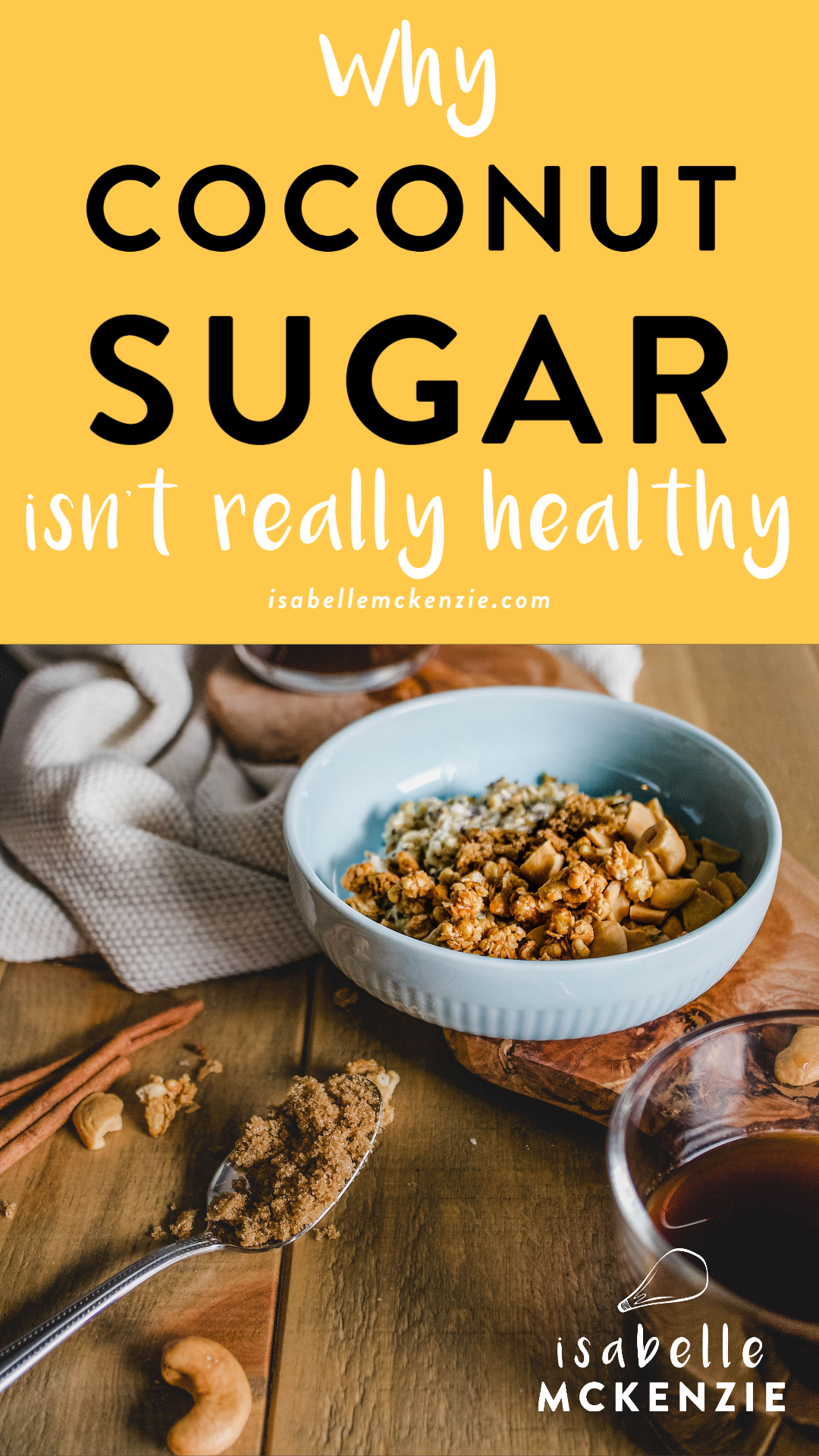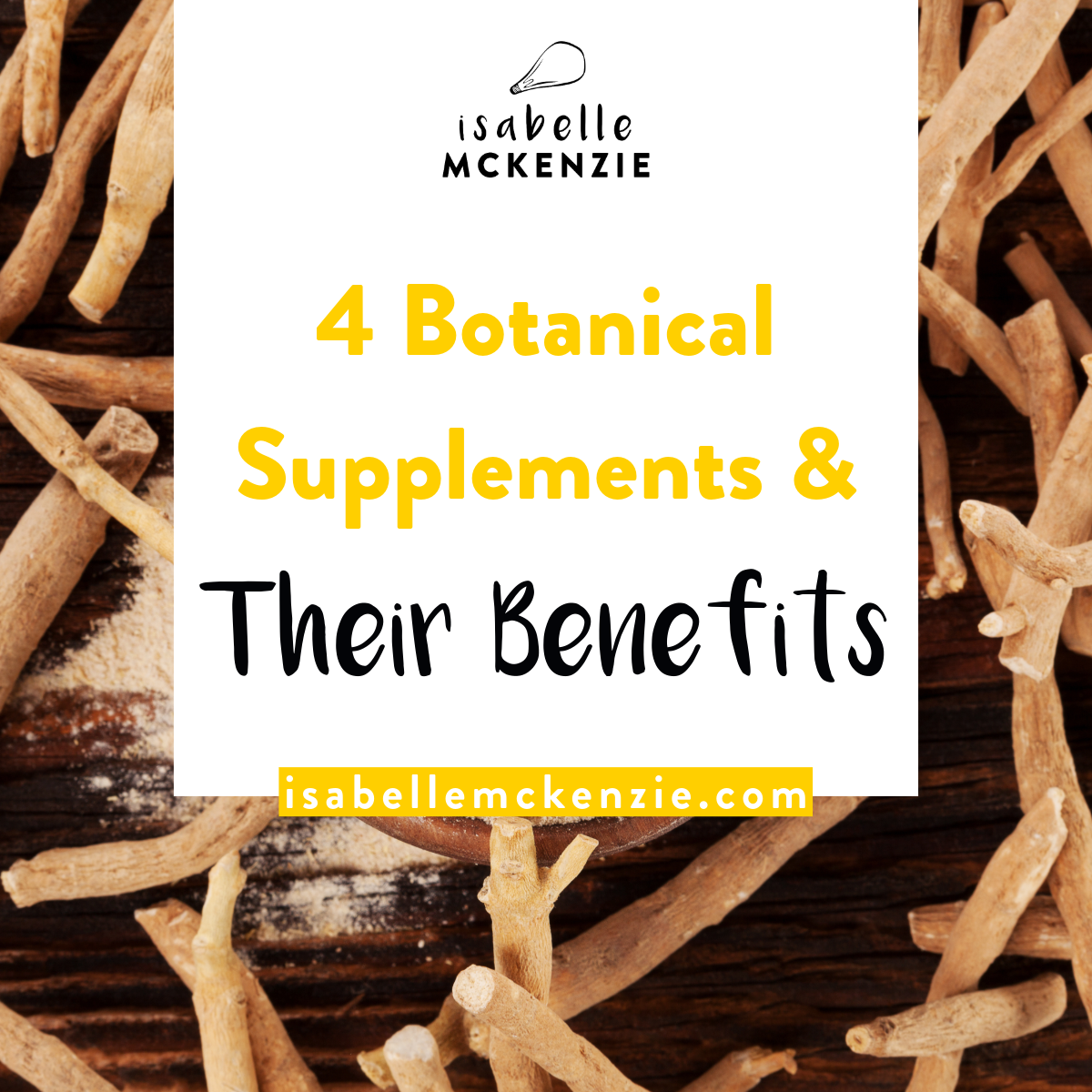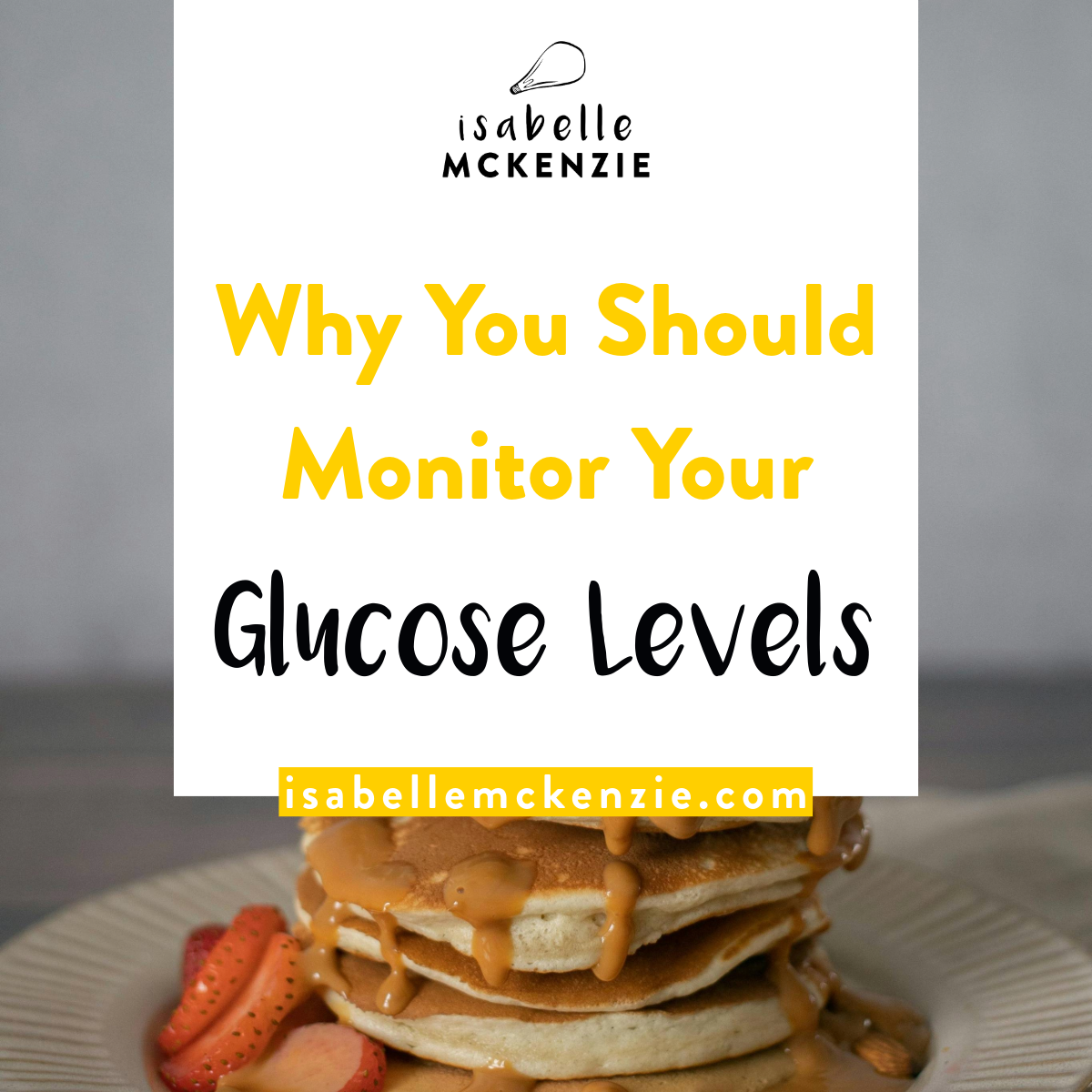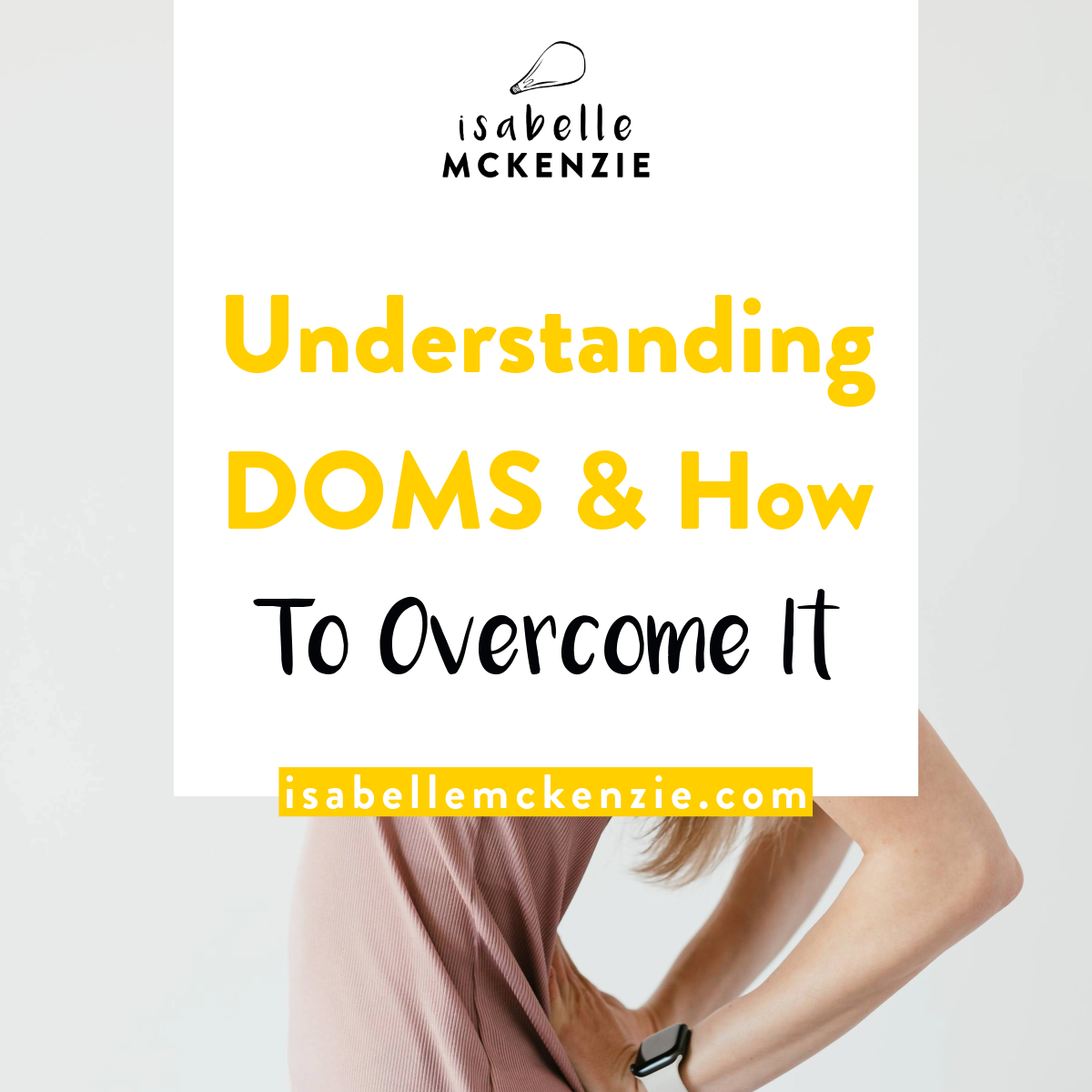Why Coconut Sugar Isn't As Healthy As You Thought!
#SugarBalancedLiving
Is coconut sugar actually healthy? Get ready to bust some myths about social media’s favorite natural sugar alternative: coconut sugar! While coconut sugar has been labelled by popular culture as a natural and healthy alternative to sugar, is that actually the truth? In this post, let’s find out!
Whether we like to hide from it or not, we all know that a diet excess sugar and fructose wreak havoc on our bodies, causing everything from food cravings, hormone malfunctions, and lethargy to insulin resistance, diabetes, obesity and even CANCER.
So, we can all face it: cutting down on sugar is a must… but, unfortunately I have to say its not as simple as bye, bye table sugar!
As someone who lives a reduced sugar balanced lifestyle and who loves to be a healthy baker and work on creating really delicious yet nourishing dessert recipes, finding a sugar alternative that is actually healthy can be a tough job - especially with so much false advertising from both companies and influencers.
Contrary to popular advice, I've discovered overtime that cutting down on sugar isn’t just cutting down on table sugar. Many sweeteners – even natural ones – are basically still just sugar.
And… I have to say coconut sugar ‘used to be’ my staple.
Cue… a coconut sugar short story!
When I first started on cleaning toxic sugar from my diet and heading on my journey of creating a healthier lifestyle, the first thing I did was search out an alternative to fill in the gap that sugar left.
I would try different sweeteners that I thought worked great, but I still had continuous cravings, was yo-yo dieting, and although feeling better than before my body still hadn’t healed from all health issues caused by my ‘old’ unhealthy diet.
So, overtime, I decided to seriously knuckle down on creating a vibrant and sustainable healthy diet. I began researching everything to do with wellness and specifically sugar, what it actually is, how it scientifically affects my body, etc.
Through this period of research and testing wellness methods on myself, I was able to discover just how much conflicting advice on nutrition is thrown around, especially within this last decade.
For the longest amount of time the collective world had been tossing around ideas like doing crazy amounts of exercise, starving ourselves, or calories in and calories out methods and fearing fat, but the truth is fad diets aren’t accurate - not all calories are the same. Most food groups can’t seemly be deemed as bad or good - we have to look at the basics of nutrition.
And… while we can all agree that SUGAR is a big no, no for health, what I now know is that cutting back or removing sugar isn’t just about skipping donuts or a soda.
When we talk curbing the negative effects of sugar, we need to include reducing your intake of foods that spike your blood sugar levels negatively or act as sugar in the body, like most artificial sweeteners and many natural sweeteners - even the ones marketed as healthy.
Here’s where coconut sugar fits in...
You see, coconut sugar is a healthy baker’s better-for-you alternative to table sugar. Many bakers swear by it, I used to love cooking with it, and it was something that I never thought I would need to give up (I mean I had already given up agave and swerve), but if you take a close look at this sugar alternative there are some not so healthy secrets you need to know about.
The truth about coconut sugar
Coconut sugar’s popularity has been built up in only a short amount of time due to the common advertising saying that it’s a lower-glycemic (basically an index of how something affects your blood sugar) alternative to table sugar.
Yet, if you may remember that the lower-glycemic marketing strategy may sound familiar - probably since it was used by a ‘dark old’ sugar alternative: fructose. Yep… the lower-glycemic marketing ploy was used in pushing high-fructose foods. Of course, today we now so smartly know that fructose is no healthy choice.
While fructose doesn’t raise insulin as quickly as high blood sugar level spiking foods do, it instead is a toxin to your liver and heads straight to it causing hormone malfunctions.
Plus, one major one drawback of the glycemic index is that the glycemic response can vary and has nothing to do with how nutrition of food actually is set up. It’s like comparing a red potato to candy.
Well does what does this mean for coconut sugar?
Is coconut sugar really a “healthy” sugar?
Allow me to explain why I stopped using this so-called-healthy baking sugar alternative. Let’s get the facts and let’s get analyzing!
Is Coconut Sugar Unhealthy? Here’s The Low Down On Coconut Sugar!
Coconut sugar is made from the sap of the cut flower buds from a coconut palm tree. No, it’s not made from coconut fruits (the part which most beneficial coconut products are derived from, like coconut water, coconut milk, and coconut flour) - yeah, I was surprised too!
How Coconut Sugar Is Made
The sap from the flowers is then boiled until most of its water content evaporates, as it dries, the leftover product is a caramel-colored brownish crystallized sugar that looks and kind of tastes like brown sugar. The largest component that makes up coconut sugar is sucrose (which is comprised by half fructose) and the percentage can actually be up to 90 percent sucrose. This makes coconut sugar made up of at least 38% fructose.
And… sadly, the frequent claim that coconut sugar is effectively low sugar isn’t exactly true - it’s just not as clear-cut as it may sound.
Coconut sugar is lower than table sugar on the Glycemic Index, but the GI system doesn’t actually apply to sweeteners because it doesn’t measure fructose, and fructose is the main component of coconut sugar.
The reason why fructose ranks lower on the GI is because the body doesn’t instantly use it for energy, so it doesn’t affect blood sugar right away. Hold your horses… this isn’t all good news!
When you eat excess fructose, it goes straight to your liver. It’s metabolized solely within the liver, so virtually all ingested fructose becomes stored as newly created fat.
It’s toxic to your liver and it messes with your hormones, which can lead to many times of health conditions: toxic accumulation, increased risk of fungal infections, decreased brain function, etc. Basically in English (not-science talk), the fructose content in coconut sugar is processed – straight to your liver – causing fat storage and health issues.
Oh… and if you’re wondering about those vitamins and minerals benefits often pushed with coconut sugar branding?
Coconut sugar may have trace amounts of some vitamins and minerals, but not enough to justify consuming that fructose hit. The bottom line is: you don’t want this stuff metabolizing in your body. Although coconut sugar has nutrients like iron, zinc and calcium, it’s not much – you’ll need to eat a ton load to get any meaningful amount.
And if you’ve read the labels saying how “natural” and “unprocessed” coconut sugar is? Well, remember, when I explained the process of making coconut sugar? It’s akin to raw table sugar.
Put clearly: it may seem purer with fewer plant-to-bag steps, but there is still processing involved.
However, unlike regular table sugar, coconut sugar does come with a slight nutritional edge; a little less refinement, which does make it a better choice over cane sugar, especially if you have diabetes or pre-diabetes. But, note this, coconut sugar is by no means a healthy sugar alternative.
Don’t believe the nutritious super-food hype. Coconut sugar is still an added sugar, just like table sugar.
So What Is the Best, Healthiest Sweetener?!
Summing it all up for you: coconut sugar is no miracle sweetener. An excess coconut sugar intake’s effects can be similar to regular table sugars negative health effects.
After reading this, you may now feel like you’re now destined to live life without sweetness… yet, fret no longer – there are, in fact, some viable alternatives.
Firstly, I recommend you eat at most 25 grams of fructose per day, and ideally this should be from pure whole food sources like fruit, veggies and pure complex carbohydrates. If you have high insulin levels, or are prone to insulin resistance syndrome, are overweight, or have high cholesterol, high blood pressure, diabetes, or yeast infections, I highly suggest you be careful when consuming any sweetener – even fruit – until you get your condition sorted out.
If you’re determined to use a sweetener, firstly be sure to avoid artificial and alcoholic sweeteners, due to potential effects (sometimes even toxic effects), and because they are very likely to cause you to crave and drink and eat more sugar.
I recommend you stick to natural whole form and pure sweeteners that are safe for both blood sugar levels and insulin levels, including stevia, monk fruit, pureed fruit, dates, and vanilla – of course, don’t go crazy and keep moderation mind.
When it comes to natural sweeteners like maple syrup, agave, or honey, they're all processed in the body like sugar, so I suggest you stay away from them just like coconut sugar - other than a very moderated honey amount.
The reason why I do allow I little bit of honey in my regular diet rather then maple syrup is a tad bit complicated for this blog post – if you’re interested in getting the answer behind the sugar in honey click here to read my in-depth analysis on it.
Don’t let your stumble with coconut sugar get you down! I too once thought coconut sugar was a magical swap-out.
I know it can be hard to stay motivated to eat cleanly with all this misinformation going around, but when we work together health will prevail.
Living a sugar balanced and/or a healthy lifestyle with wellness as priority, doesn’t make life miserable. You don’t have to give up sweets entirely; it just means you need to replace unhealthy refined sugars and artificial sweeteners with the RIGHT natural sweeteners and sugar substitutes, and moderate.
I’m so proud and overjoyed that you’re working towards reducing sugar in your life, and creating a sugar balanced lifestyle. Vibrant and abundant health awaits you.
Actually I'm so happy that I want to help make your healthy and low-sugar/sugar-free shopping a little bit simpler. So, I've gathered together a really informative and useful list of everyday innocent-looking foods that are hiding a surprising amount of sugar in my '27 Hidden Sugar Foods to Watch Out for Checklist + Guide. Because we’re no longer gonna get tricked by annoying “healthy” marketing ploys.
















… yup, the Isabelle behind the IsabelleMcKenzie.com!
Instagram: @ItsIsabelleM | Pinterest: @ItsIsabelleM | Subscribe on Youtube
I’m dedicated to helping teach people how to live their happiest, healthiest life and reach their goals so that they can create the lifestyle of their dreams with integrity & purpose.
I focus on self-care, mind, body and health, dedicated to helping teach peeps how to live their happiest, healthiest life and reach their goals so that they can create the life that will have them jumping out of their bed in the morning to actually live!
Read More >